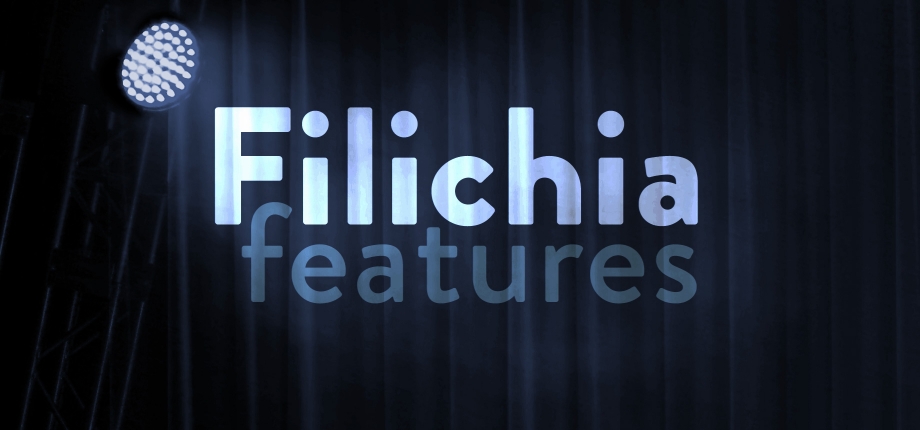Filichia Features: Does CRY-BABY Cry out to You?

Filichia Features: Does CRY-BABY Cry out to You?
I've heard many directors in community and high school theaters say it.
"Grandparents are a substantial part of our audience," they insist. "Seeing their grandchildren on stage is a priority."
So if your theater company or club features teens, entertain those Baby Boomer grandparents — the seniors who remember Danny and the Juniors, Dion and the Belmonts and Kathy and the Innocents.
(Does this mean that Kathy wasn't innocent …?)
Whatever the case, these Golden Agers will have a great time at Cry-Baby, the 2007-08 Tony Best Musical nominee.
Hairspray's Tony-winning team of Thomas Meehan and Mark O'Donnell again adapted a John Waters' film: Cry-Baby, a spoof of the juvenile-delinquent films that permeated the '50s.
Their Tony-nominated Best Book returned us to Baltimore, but eight years earlier to 1954. Kitty Kallen, Perry Como and Rosemary Clooney had the three top records that year, while Bill Haley and the Comets could only reach #26 with "Shake, Rattle and Roll."
However, 1955 saw their "Rock Around the Clock" hit #2 and jumpstart the musical revolution.
David Javerbaum and Adam Schlesinger's score offers some pre-rock easy listening via the soft-shoe "All in My Head" and "Squeaky Clean." ("Down to our marrow, we're very straight and extremely narrow.")
The other 19 songs, though, bring back unabashed '50s rock 'n' roll (before the term was abridged to the More Serious "Rock").
Nine involve Wade "Cry-Baby" Walker, the anti-hero who shakes up "good kid" Baldwin and do-gooder Mrs. Vernon-Williams.
(We'll see how "good" they are by show's end.)
Wade is described as "a James Dean-like figure, rather than an Elvis." Yet even in Dean's motorcycle jacket, he's Presley when he sings. Javerbaum and Schlesinger have created melodies that will make those grandparents nod and say to themselves "Yeah, they got that right." They'll also hear echoes of everyone from Connie Francis to Jerry Lee Lewis.
(And to accompany them, do get a saxophonist as good as Lisa Simpson.)
Early rock songs had a tendency to repeat lyrics; hence, Wade's song to straight-laced Allison Vernon-Williams is "Baby Baby Baby Baby Baby (Baby Baby)." After Wade sings "Baby" 105 times, he asks Allison to sing along. Her response? "I don't know the words."
That kind of humor has won Javerbaum 13 primetime Emmys, mostly for The Daily Show. He's also garnered one for his lyrics to the 2012 Tonys' opening song, which stated that musical theater is "Not Just for Gays Anymore."
In Cry-Baby, Mrs. Vernon-Williams is certain that Wade is not for her granddaughter Allison: "You're not our kind, dear." Allison's beau Baldwin calls him "a poorhouse pinko." Wade is told "It's a free country, but not a free country club. In the event of a nuclear attack, the shelter is for members only."
Wade laments "Nobody understands I'm misunderstood. When I show my face, you show me the door." But Allison is one of those good girls who likes bad boys. She doesn't care that Wade has been "in all the papers for joy-riding." She's impressed that after he lights a match that he extinguishes it in his mouth. What else can she sing but "I'm infected with these feelings that you've injected."
Wade's not all that tough. His song "Girl, Can I Kiss You?" is grammatically incorrect: "May I Kiss You" is what he means. But in these days when we're all paying attention to the #MeToo Movement, the fact that he asks permission is heartening.
Alas, nothing will go well for either Wade or Allison. Teens suffer misery, agony, helplessness, hopelessness, heartache and woe — which is why Javerbaum and Schlesinger wrote a (terrific) song and used those six nouns as their title.
Little Anthony and the Imperials would have loved it; grandparents may well love all the music. You've heard of artists winning the EGOT — meaning Emmy, Grammy, Oscar and Tony? For his music, Schlesinger can at least claim a lower-case egot, for he's received Emmy, Grammy, Oscar and Tony nominations. (The last-named came for Cry-Baby).
Although Cry-Baby is a proud rock 'n' roll musical, its eleven o'clock number — "Nothing Bad's Ever Gonna Happen Again" — is in step with the grand Golden Age musical theater tradition of songs with positive outlooks. For starters, think of "A Cockeyed Optimist," "You Gotta Have Heart" and "Put on a Happy Face." When today's grandparents see this optimistic musical that possesses a great deal of heart, they'll put on their own happy faces even when their grandchildren aren't on stage.
You may e-mail Peter at pfilichia@aol.com. Check out his weekly column each Monday at www.broadwayselect.com and Tuesday at www.masterworksbroadway.com . He can be heard most weeks of the year on www.broadwayradio.com.

























